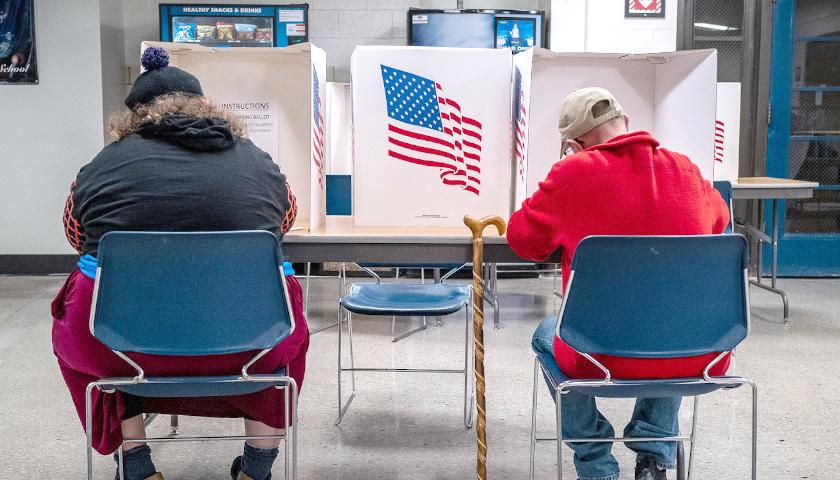Tennessee lawmakers passed a bill on Friday that would extend eligibility for participation in the state’s Educational Savings Account (ESA) program to Hamilton County students.
The Senate passed its version of the bill, which limited expansion to Chattanooga, back in February. This week, the House passed a version (SB0012) that included Knoxville in the ongoing pilot program.
When the reconsidered bill came up in the Senate, it failed to pass, thus sending it back to the House, where lawmakers voted to adopt and conform to the Senate version, excluding Knoxville students from eligibility.
Democrats argued against passage based on the initial program being set up as a pilot program, and that at this juncture, there was insufficient data available in order to evaluate the success of the program and justify expansion.
State Representative Yusuf Hakeem (D-Chattanooga) said the House was ignoring the will of the people in pursuing expansion because the bill sponsor, State Representative Mark White (R-Memphis), failed to talk to him about the bill.
Hakeem told fellow lawmakers, “To the best of my knowledge there is but one individual in our legislator body who asked you bring this expansion, how can that one individual speak for the people of Hamilton County?”
“The same way as you,” answered White. “We are a representative government.”
The expansion was initially proposed in the Senate, by State Senator Ron Gardenhire (R-Chattanooga) (pictured above), who enlisted White as chair of the House Education Committee, to be the House bill sponsor. White further pointed out that other representatives from Hamilton County had signed on to the bill.
State Representative Antonio Parkinson (D-Memphis) stated that expansion was being proposed because “nobody was interested in participating” in the pilot program and that expansion was needed in order to attract more applicants.
As of April 14, the Tennessee Department of Education (TDOE) approved 705 ESA applicants for this school year in Memphis-Shelby County Schools and Metro Nashville Public Schools. Of that number, 453 applicants had submitted proof that they’ve enrolled in a state-approved private school. Each voucher gives a student $8,200 to use toward private school tuition.
According to White, 1500 applications are currently under consideration by the TDOE. Tennessee’s law caps enrollment at 5,000 students in the program’s first year.
Going forward, if there are more than 75 percent, roughly 3750 applications then the cap is allowed to grow by 2,500 students a year until reaching 15,000 students. If there are more applications than vouchers available, the state will conduct a lottery that prioritizes siblings of voucher recipients, students zoned to a priority school as designated by the Tennessee Department of Education, students directly certified to receive benefits from the Supplemental Nutrition Assistance Program (SNAP) program, and all other eligible students.
Despite the objections from Democrats, the vote to adopt and confirm passed by a margin of 57 -27, with five people not voting. Speaker of the House Cameron Sexton broke with Republicans and voted “nay.”
Beacon Impact CEO Justin Owen praised the Tennessee legislature’s expansion of the ESA program, saying:
“Today, the legislature voted to expand Tennessee’s education savings accounts program to Hamilton County, giving thousands more parents a choice when it comes to their child’s education. We are deeply disappointed that some senators limited the bill by removing Knox County, but we thank Sen. Todd Gardenhire and Rep. Mark White for championing this important legislation and all the legislators who stood with Tennessee families this week. Beacon has worked tirelessly to give families more parental choice and will continue to work until every child in the state can get the education that best meets his or her needs.”
Knox County was slated to be included in the 2019 legislation but the county was removed from the plan under an agreement with State Representative Jason Zachary (R-Knoxville), who flipped his vote before the speaker ordered a final tally.
Initially, the law was held up in court, but last summer it was permitted to begin enrolling students after clearing a series of legal hurdles. The law still faces additional legal challenges in court despite being allowed to begin enrollment.
The bill now heads to Governor Bill Lee to sign into law.
– – –
TC Weber is a reporter at The Tennessee Star and The Star News Network. He also writes the blog Dad Gone Wild. Follow TC on Twitter. Email tips to [email protected]. He’s the proud parent of two public school children and the spouse of a public school teacher.
Photo “Todd Gardenhire” by Tennessee General Assembly. Background Photo “Classroom” by weisanjiang.








